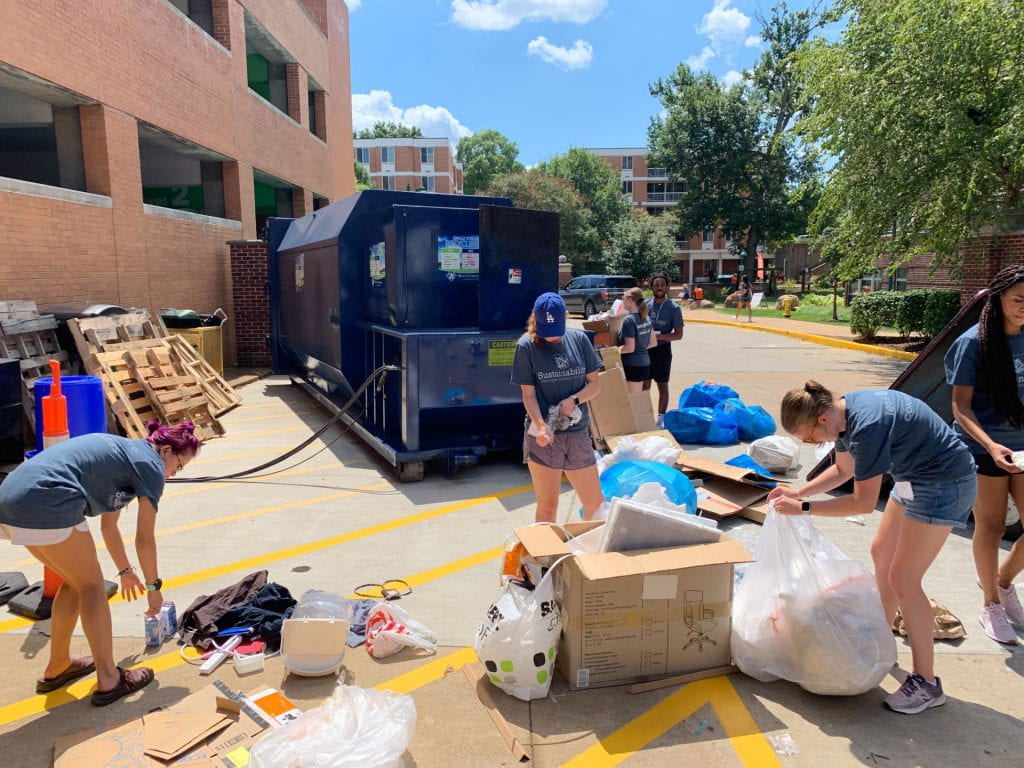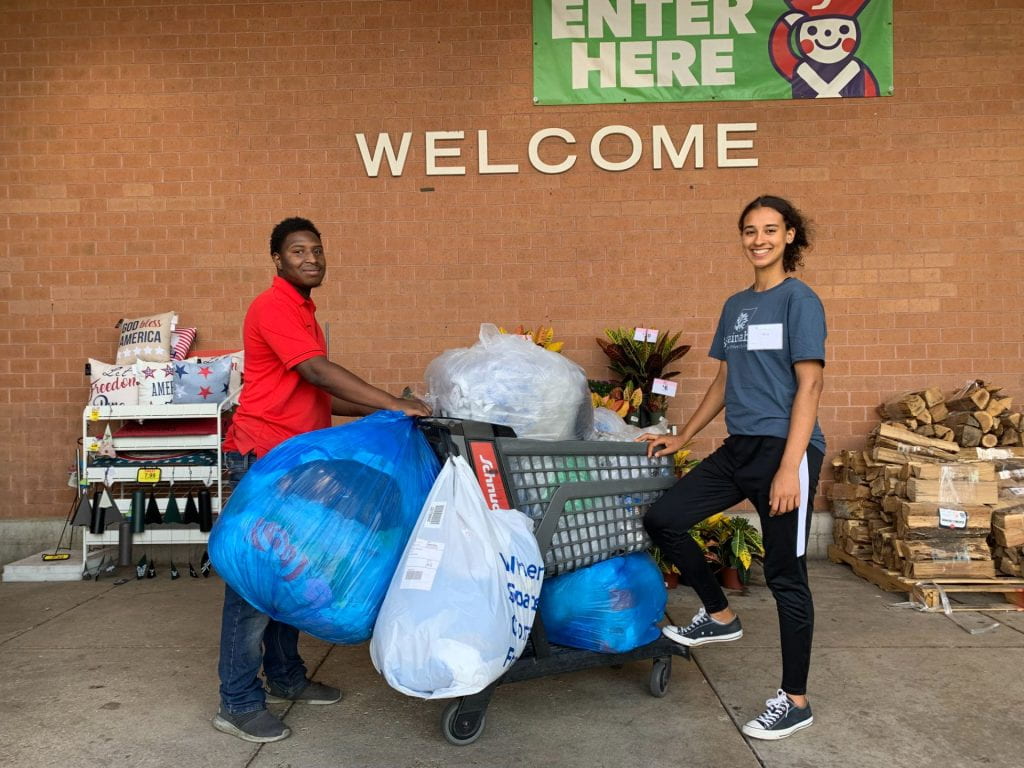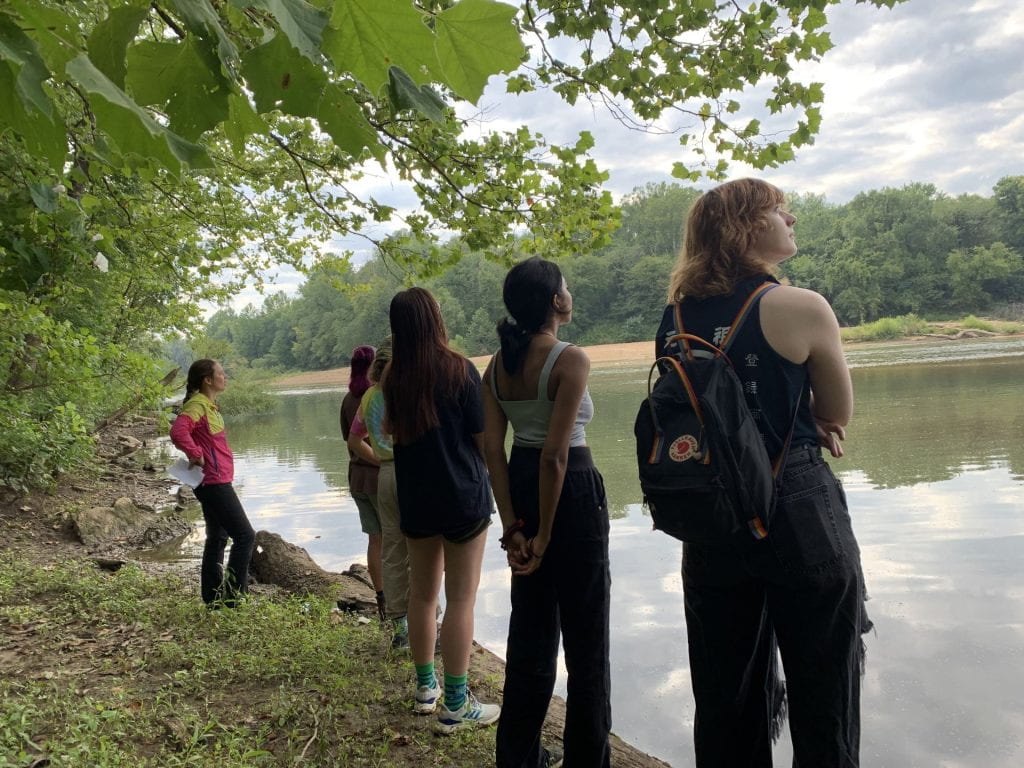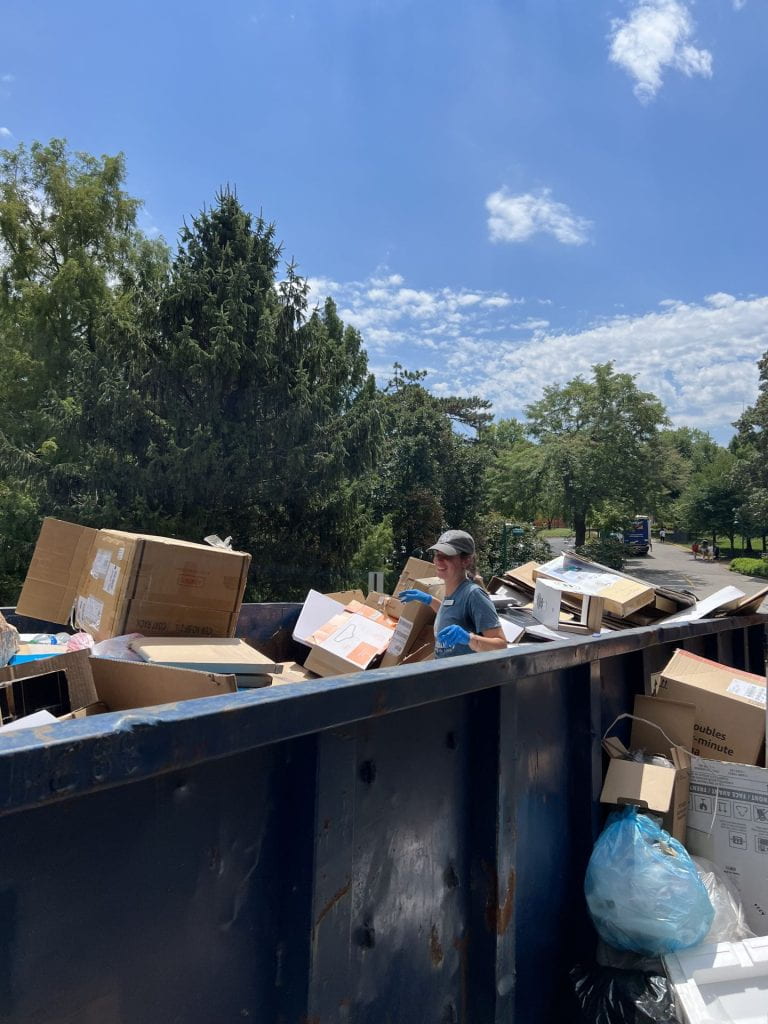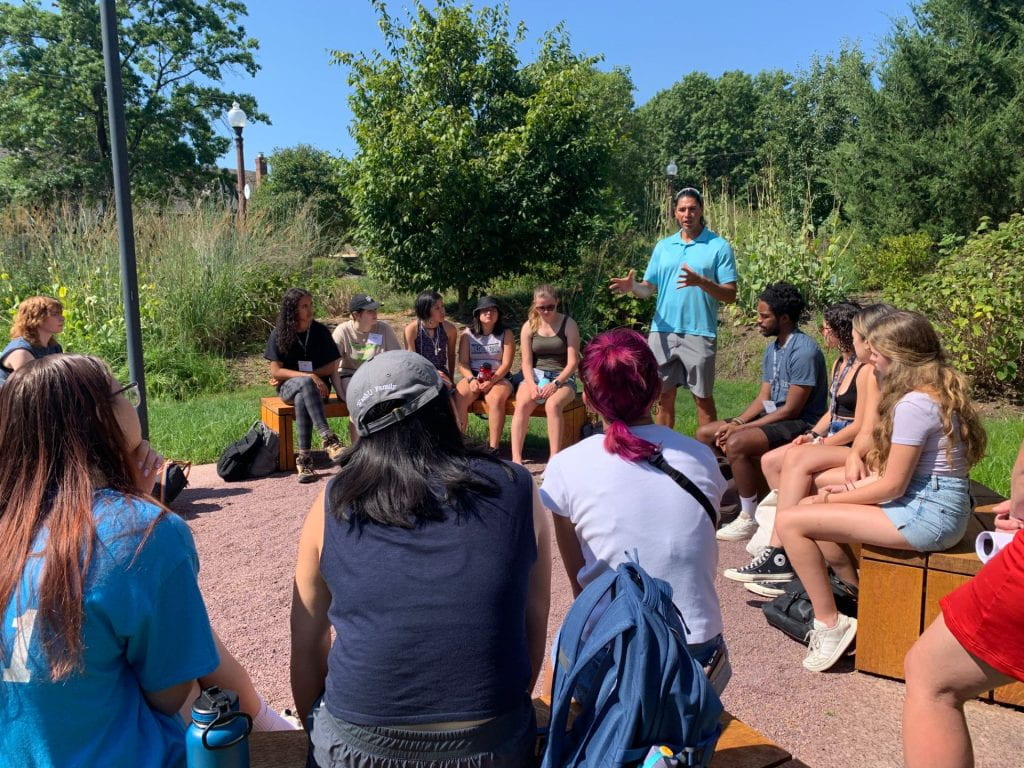Though the mountain of move-in trash seemed insurmountable, WashU Green Ambassador (WUGA) co-director, Lauren Blaydon, rolled up her sleeves and got to work.
“There is something to miss about the sheer chaos of waste sorting at move-in,” said Blaydon, a junior studying biochemistry and psychology. “The mounds of cardboard, Styrofoam, and bubble wrap were discouraging at first, but you’re never alone and it always goes faster than expected. Plus, the satisfaction you get when you can see the tangible difference you are making, can’t be beat.”
Blaydon was referring to the annual WUGA tradition of waste sorting during first-year student move-in. As part of the second cohort of the SPARK Sustainability Leadership Training Program, twenty-four students returned to campus early this year to sort through all of the cardboard, plastic and Styrofoam to minimize the amount of waste destined for the landfill.
The WUGA program is a student-managed, peer-education program supported by WashU’s Office of Sustainability that orients new students to sustainability initiatives on campus. Students first arrive on campus from myriad backgrounds, ranging from a deep understanding of intersectional environmentalism to a scant awareness of different waste streams. WUGAs work to bring everyone up-to-speed on WashU’s sustainability culture and programs, and this work starts from the day first-year students set foot on campus.
The early arrival of WUGAs has become part of what is now the SPARK Sustainability Leadership Training Program, hosted by the Office of Sustainability and supported during the academic year by the Student Environmental Council (SEC). The program pulls together leaders of the various green groups on campus as well as any upperclassmen who are interested in getting more involved in campus sustainability. The principles of inclusion, diversity, equity and access (IDEA) frame the core themes of the program:
- Leadership training and networking
- Recruitment and engagement of new students
- Healing and reflection through time in nature
- Foundation-building for future community engagement in the St. Louis region
The ten-day program was composed of service hours, which included waste-sorting and assisting at the Share Our Stuff sales; an overnight retreat with guest speakers who presented on topics like systems thinking, IDEA, and mindfulness; a day trip to Cahokia Mounds after meeting with staff from the Brown School’s Kathryn M. Buder Center for American Indian Studies; a volunteer workday at EarthDance Organic Farm in Ferguson; and a number of social events to further connect the sustainability network on campus.
SPARK participants helped to sort waste at the Party in the Park event, which marks the end of the formal orientation before classes commence. Assistant director of sustainability, Cassie Hage, was impressed by the level of coordination and thoughtfulness in planning the event. “Green event planning has really come back with a bang!” Hage said. “Event planners are layering in supporting local and historically disadvantaged businesses, reducing the need for food service ware, and making sure everything that is served on disposables can in fact be diverted from the landfill through proper sorting at a waste sorting station. Convocation planners even aligned the class gift – a reusable water bottle – with the university’s longstanding commitment to reusable water bottles over disposable ones.”
A major component of the success of WashU’s sustainability efforts is the deep level of campus partner engagement. “Many of the service opportunities SPARK participants are plugging into are efforts being led by partners like the Student Transitions & Family Programs (formerly the First Year Center), Campus Life, Residential Life, Dining Services, Sharing With A Purpose (SWAP), the Skandalaris Center, and Campus Mail. We are finding that campus partners are building sustainability into their plans – and together we can really set the tone for campus culture.”
As the SPARK students parted ways at the conclusion of the training program, the strong network of campus allies they have built will prove valuable throughout the year. SEC will continue to be a convener for the SPARK cohort and promote participation in next year’s program.
WUGA co-director, Lauren Blaydon, shared her thoughts about future SPARK programs. “I would absolutely recommend SPARK as an experience for upperclassmen. It’s a great way to meet new people with similar values, network with those in the WashU and St. Louis community, and enjoy parts of St. Louis you may not have otherwise been able to.”
For further reading:
